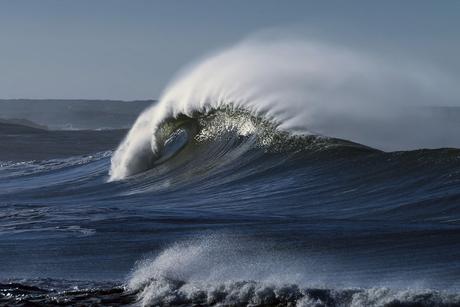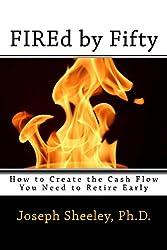
Ocean waves crashing shoreline, blue sea photo, free public domain CC0 image.
" data-image-meta="{"aperture":"0","credit":"rawpixel.com","camera":"","caption":"Ocean waves crashing shoreline, blue sea photo, free public domain CC0 image.","created_timestamp":"0","copyright":"","focal_length":"0","iso":"0","shutter_speed":"0","title":"Ocean waves crashing shoreline, blue sea photo, free public domain CC0 image.","orientation":"1"}" data-medium-file="https://smallivy.files.wordpress.com/2017/09/chjpdmf0zs9zdgf0awmvaw1hz2uvd2vic2l0zs8ymdiylta0l2xyl3n2mjmzntk1lwltywdllwt3dng2njrmlmpwzw.jpg?w=300" data-permalink="https://smallivy.com/2023/08/26/dealing-with-market-crashes/ocean-waves-crashing-shoreline-blue-sea-photo-free-public-domain-cc0-image/" alt="" class="wp-image-23447" data-large-file="https://smallivy.files.wordpress.com/2017/09/chjpdmf0zs9zdgf0awmvaw1hz2uvd2vic2l0zs8ymdiylta0l2xyl3n2mjmzntk1lwltywdllwt3dng2njrmlmpwzw.jpg?w=723" />There have been some good weeks this year, but there have also been some tough days in the markets. “Choppy” is a good way to describe the markets. The economics of the economy aren’t all good either. As the Fed raises interest rates, companies are going to find it harder to get loans. Consumers are seeing their credit card payments go up. Homes are getting harder to afford. Maybe we’ll see the soft landing everyone talks about, but it is possible we might see some bad earnings come out and surprise the markets. When that happens, you can see a lot of devastation really quickly. A market crash.
(Note, this site contains affiliate links. As an Amazon Associate I earn from qualifying purchases. When you click on an affiliate link and buy something, The Small Investor will get a small commission for the referral. You are charged nothing extra for the purchase. This helps keep The Small Investor going and free. I don’t recommend any products I do not fully support. If you would like to help but don’t see anything you need, feel free to visit Amazon through this link and buy whatever you wish. The Small Investor will get a small commission when you do, again at no cost to you.)
Even if we get through this one relatively easily, there will be a crash eventually. It will happen. And when it does, all of the people who keep talking about stock price declines being no big deal will get a reality check that will test their grit. It’s one thing to talk about buying dips when you see a 2% decline. It’s another when your index fund loses 30% in a day or two. You start looking back at all of the ground you’ve lost, thinking about the money you could have had.
But you really can’t predict crashes. You see, markets that have plenty of people trading, which the stock markets do, will instantly price in all news, expectations, and insights. If people knew that the markets were about to decline, they would be selling as soon as they knew, which means that prices would be going lower already. You aren’t going to beat the crowd and sell out right before a crash.
The fact that there are plenty of people buying and selling at current prices means that all of the news out there is already priced in and decided that current prices are reasonable. Sure, bad news may come out tomorrow and cause stock prices to fall, but the market might continue to climb for another year or two. You can’t just sell, go into cash and sit on the sidelines because even when markets are obviously overpriced they can continue to increase for a long time. If you’re sitting there on the sidelines with a pile of cash, you’ll be losing money to inflation, missing out on dividends, and perhaps missing out on a 20-40% gain in share prices before the fall happens.

That said, if you really need the money in a few years and you do not have flexibility to wait should a crash occur, go ahead and sell and go into cash. The reason is that when big drops do occur, it typically requires 2-5 years for the markets to recover back to where they were before the drop. The average amount of time required, looking at all periods since 1926, is 3.3 years. That means if a big drop happened today, it might take 3, four, or even 5 years before share prices returned to where they were before the crash. In really bad times, like the Great Depression, it might take 10-15 years. If you really need the money within 5-10 years, and the consequences of not having all of the money would be dire, sell. But if you could get by with half and you have 5-10 years, it probably would be best to hold on. If you could wait a while and flex your purchase, maybe hold on as well since your chances of having more in a few years are better than your chances of having less. Big crashes are relatively rare.
Get out of here – Find great deals on outdoor equipment here
But what should you do if the market crashes but you don’t need the money for a long time? For example, what if there is a big crash that causes your retirement funds to decline 30%, but you aren’t planning to retire for 20 years? Here are some steps to take to not only survive a crash, but thrive:
1. Don’t panic. As the Hitchhiker’s Guide to the galaxy says, don’t panic. Panicky people do stupid things, like selling in the middle of a decline. The best thing you can do during a market decline is to just relax and stick to your investment plan.

2. Do nothing. A market crash is a bit like skidding on the ice. The best thing you can do is to take your feet off the peddles and let yourself coast to a stop. I usually just stop following stocks for a while when the news is bad day after day, maybe checking account balances about once a month or two, and maybe looking for some stocks on which to take a loss as a tax deduction if it is around the end of the year. Otherwise, I just wait for a recovery.
Before you can start investing, you need money to invest. Please check out my latest book, FIREd by Fifty: How to Create the Cash Flow You Need to Retire Early. You’ll learn how to control your cash flow so that you’ll have money to invest and grow wealth.

3. Buy more. Instead of looking at a market crash as a bad thing, when you’re many years out from needing the money, it can actually be a great thing to see prices decline. Typically stocks go down well below their fair value when everybody’s selling, so a market crash is a great opportunity to load up on cheap shares. Some of the best returns you’ll ever see come the year or two after a major market decline. If you can raise some money to allow you to scoop up some shares, basically everything will be on sale. Realize, however, that there may be a few downturns before the market finally straightens out and head up again, so don’t be discouraged if your shares decline after you make your first purchase or two. You’ll probably not buy at the bottom.
New to investing? Want to learn how to use investing to supercharge your road to financial freedom? Get the book: SmallIvy Book of Investing: Book1: Investing to Grow Wealthy
Have a question? Please leave it in a comment. Follow me on Twitter to get news about new articles and find out what I’m investing in. @SmalllIvy
Disclaimer: This blog is not meant to give financial planning or tax advice. It gives general information on investment strategy, picking stocks, and generally managing money to build wealth. It is not a solicitation to buy or sell stocks or any security. Financial planning advice should be sought from a certified financial planner, which the author is not. Tax advice should be sought from a CPA. All investments involve risk and the reader as urged to consider risks carefully and seek the advice of experts if needed before investing.
